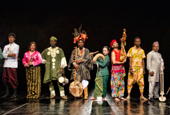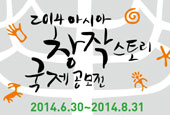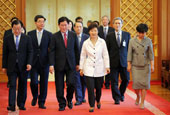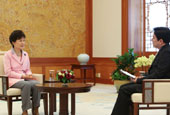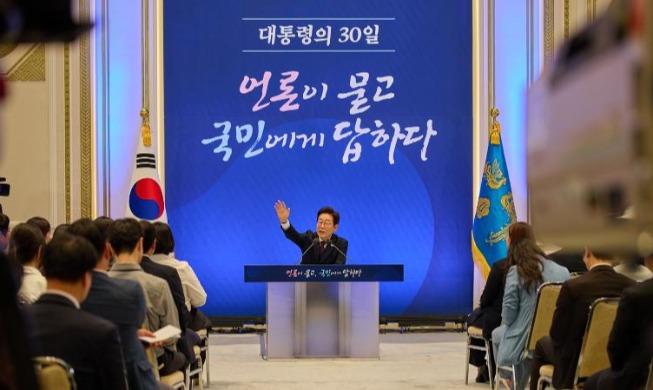Students at elementary and secondary schools are to be given expanded opportunities to study the humanities in the form of concerts and clubs. Also, regardless of one's major, all university students will be required to attend lectures on both the humanities and the natural sciences, in a bid to help enhance their basic intellectual groundwork and to increase their general knowledge.
The above plans were announced on August 6 during a meeting of the Presidential Committee for Cultural Enrichment. An affiliated committee, specially designed to promote a broad education covering both the arts and sciences, suggested that learning more about the humanities -- languages, literature, philosophy, religion, music, theater -- should be carried out to enhance people's understanding of life.
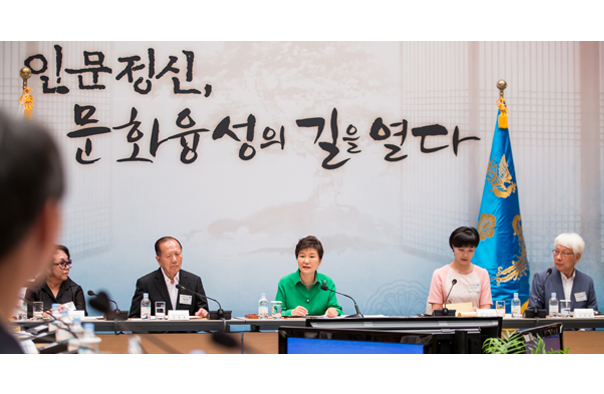
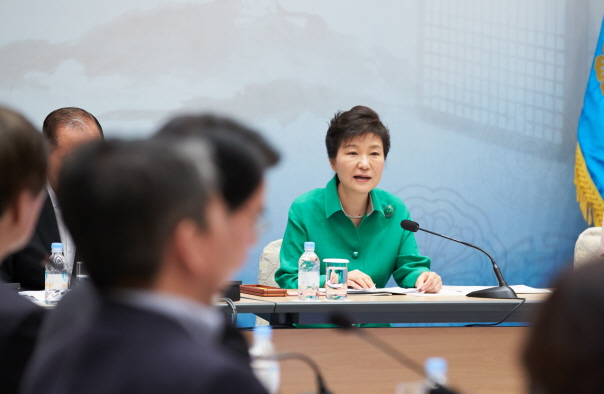
The Ministry of Culture, Sports and Tourism, publisher of Korea.net, has teamed up with the Ministry of Education to announce seven major plans based on the above suggestions. Under the plans, the government will strengthen humanities education for students at elementary and secondary schools, helping them to develop character and creativity. It will improve and expand the choice of liberal educational courses for university students, to enhance their general humanism. It will step up efforts to increase scholarly capabilities in the humanities and produce better-educated future generations. All of this, the government said, will help to realize a, "community-based humanism," in people's daily lives, helping to combine and integrate people's understanding of the humanities with the culture industries. The government hopes to diversify the content of humanities education programs based on age group and, finally, boost international exchanges at universities and businesses.
Humanism to be embedded in people's daily lives
The Ministry of Culture will expand opportunities for people to learn about the humanities and social sciences in their daily lives. As part of these efforts, it launched the "Humanities on the Streets" program, supported by the National Library of Korea. Participants are given the chance to visit a certain meaningful location and listen to a public lecture by a specialist. The program is to be enhanced and expanded nationwide. The ministry also plans to give people more chances to rediscover traditional concepts of "practical studies" that spread across the nation during Joseon times (1392-1910), and help them to learn about the values and spirit of Joseon-era scholars. In addition, the government will help to bring more historic sites, such as Confucian temples, schools and memorial halls for traditional rituals, into public use. Finally, in a spurt for the domestic tourism industry, ancient tales and historical facts of each village and region will be promoted, giving a local understanding of the humanities to travelers across the country.
Museums and galleries nationwide will join the movement, opening special exhibitions on the humanities all year round. Movies, animations and video games will be produced with a touch of regional humanism.
As part of the cultural education program tailored for specific age groups, retirees will be encouraged to share their wisdom and talents with the younger generations, so as to reduce the generation gap and to help relieve any feelings of lethargy the elderly may be experiencing.
Furthermore, special programs will be offered to some disadvantaged sections of society, to help them plan for a better future. The scope of recipients will be gradually expanded to include soldiers, prisoners, the disabled and North Korean defectors. They will be exposed to more chances to learn about having a worldly perspective by attending a variety of cultural events themed on the humanities, such as the World Humanities Forum and other programs offered in partnership with relevant organizations.
The government will also step up its efforts to supply and translate more humanist and classical books, so that elements of Korean humanism can be introduced on the global stage.
Integrated education to be sought out to enhance general knowledge
The Ministry of Education will focus its efforts on enhancing humanities education for students in elementary and secondary schools. Lectures and lessons will be tailored to strengthen the educational benefits for all students.
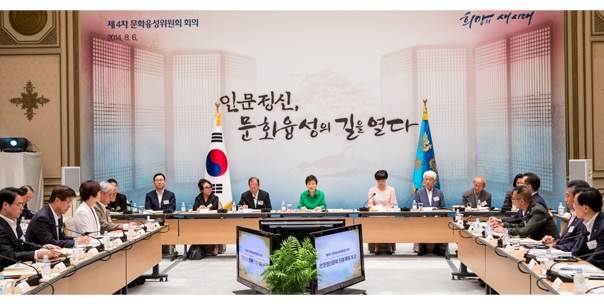
A variety of programs designed to emphasize hands-on activities will be promoted. Students will be encouraged to take part in programs that stimulate their creativity during the "Dream and Talent Exploration Week" (unofficial translation). This will give them some time to think about their dream job and future career. Younger students will also be encouraged to participate in various cultural activities, especially in sports and the arts.
The direction of education will be shifted to focus more on the value of communication and consideration. Efforts to train and nurture instructors and lecturers will be enhanced and more humanities-themed public lectures, targeted at both students and parents, will be prepared through community-based networks.
A range of efforts and plans will be implemented at universities, too. A high-quality lecture program will be developed and full-time lecturers will be encouraged to teach more liberal courses. Mentor-mentee networks and exchanges will also be further promoted. In an effort to help develop students with remarkable talent, universities will establish a moderate-sized lab for further research and will be encouraged to put more efforts into training the next generation of leaders. Universities across the nation will also step up efforts to modernize the interpretation of classic literature, creating new studies and giving attention to lesser-known areas.
By Wi Tack-whan, Lee Seung-ah
Korea.net Staff Writers
whan23@korea.kr
The above plans were announced on August 6 during a meeting of the Presidential Committee for Cultural Enrichment. An affiliated committee, specially designed to promote a broad education covering both the arts and sciences, suggested that learning more about the humanities -- languages, literature, philosophy, religion, music, theater -- should be carried out to enhance people's understanding of life.


President Park Geun-hye delivers a speech at Cheong Wa Dae on August 6 during a meeting of the Presidential Committee for Cultural Enrichment. (photos: Cheong Wa Dae)
The Ministry of Culture, Sports and Tourism, publisher of Korea.net, has teamed up with the Ministry of Education to announce seven major plans based on the above suggestions. Under the plans, the government will strengthen humanities education for students at elementary and secondary schools, helping them to develop character and creativity. It will improve and expand the choice of liberal educational courses for university students, to enhance their general humanism. It will step up efforts to increase scholarly capabilities in the humanities and produce better-educated future generations. All of this, the government said, will help to realize a, "community-based humanism," in people's daily lives, helping to combine and integrate people's understanding of the humanities with the culture industries. The government hopes to diversify the content of humanities education programs based on age group and, finally, boost international exchanges at universities and businesses.
Humanism to be embedded in people's daily lives
The Ministry of Culture will expand opportunities for people to learn about the humanities and social sciences in their daily lives. As part of these efforts, it launched the "Humanities on the Streets" program, supported by the National Library of Korea. Participants are given the chance to visit a certain meaningful location and listen to a public lecture by a specialist. The program is to be enhanced and expanded nationwide. The ministry also plans to give people more chances to rediscover traditional concepts of "practical studies" that spread across the nation during Joseon times (1392-1910), and help them to learn about the values and spirit of Joseon-era scholars. In addition, the government will help to bring more historic sites, such as Confucian temples, schools and memorial halls for traditional rituals, into public use. Finally, in a spurt for the domestic tourism industry, ancient tales and historical facts of each village and region will be promoted, giving a local understanding of the humanities to travelers across the country.
Museums and galleries nationwide will join the movement, opening special exhibitions on the humanities all year round. Movies, animations and video games will be produced with a touch of regional humanism.
As part of the cultural education program tailored for specific age groups, retirees will be encouraged to share their wisdom and talents with the younger generations, so as to reduce the generation gap and to help relieve any feelings of lethargy the elderly may be experiencing.
Furthermore, special programs will be offered to some disadvantaged sections of society, to help them plan for a better future. The scope of recipients will be gradually expanded to include soldiers, prisoners, the disabled and North Korean defectors. They will be exposed to more chances to learn about having a worldly perspective by attending a variety of cultural events themed on the humanities, such as the World Humanities Forum and other programs offered in partnership with relevant organizations.
The government will also step up its efforts to supply and translate more humanist and classical books, so that elements of Korean humanism can be introduced on the global stage.
Integrated education to be sought out to enhance general knowledge
The Ministry of Education will focus its efforts on enhancing humanities education for students in elementary and secondary schools. Lectures and lessons will be tailored to strengthen the educational benefits for all students.

President Park Geun-hye attends a meeting of the Presidential Committee for Cultural Enrichment on August 6. (photo: Cheong Wa Dae)
A variety of programs designed to emphasize hands-on activities will be promoted. Students will be encouraged to take part in programs that stimulate their creativity during the "Dream and Talent Exploration Week" (unofficial translation). This will give them some time to think about their dream job and future career. Younger students will also be encouraged to participate in various cultural activities, especially in sports and the arts.
The direction of education will be shifted to focus more on the value of communication and consideration. Efforts to train and nurture instructors and lecturers will be enhanced and more humanities-themed public lectures, targeted at both students and parents, will be prepared through community-based networks.
A range of efforts and plans will be implemented at universities, too. A high-quality lecture program will be developed and full-time lecturers will be encouraged to teach more liberal courses. Mentor-mentee networks and exchanges will also be further promoted. In an effort to help develop students with remarkable talent, universities will establish a moderate-sized lab for further research and will be encouraged to put more efforts into training the next generation of leaders. Universities across the nation will also step up efforts to modernize the interpretation of classic literature, creating new studies and giving attention to lesser-known areas.
By Wi Tack-whan, Lee Seung-ah
Korea.net Staff Writers
whan23@korea.kr
Related Contents
Most popular
- Grammy-winning producer calls Suga of BTS 'amazing artist'
- Animated 'KPop Demon Hunters' tops Netflix charts in 41 markets
- 'Squid Game' events to pump up K-Content Seoul Travel Week
- Reunited BLACKPINK releases video preview of world tour
- 'Universal love, family' themes fuel success of 'King of Kings': director
